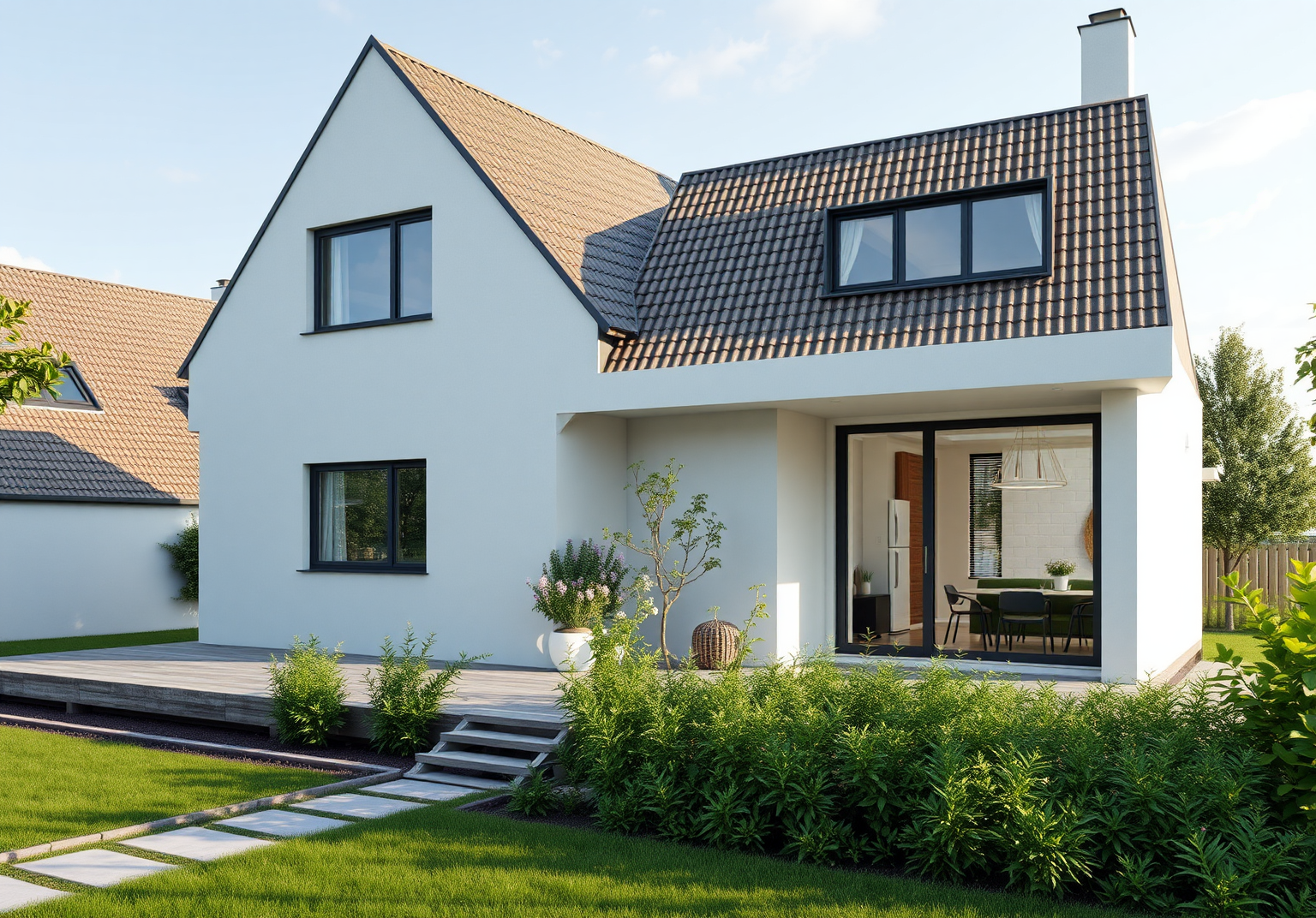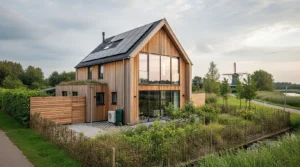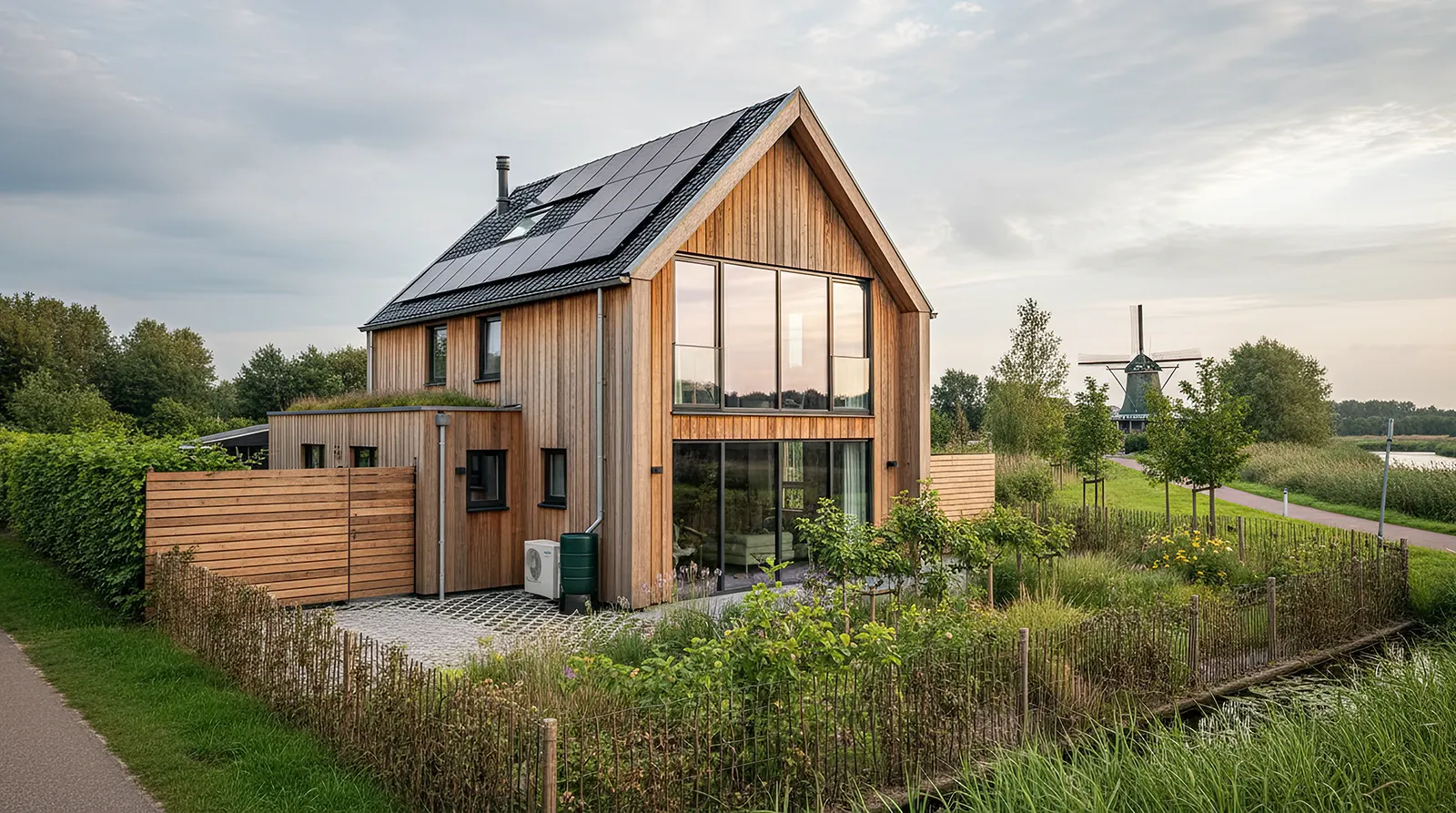Energy-Efficient Home Renovations: Real-Life Case Studies That Inspire
Introduction
In the Netherlands, where sustainability and energy efficiency are increasingly important, renovating homes to be more eco-friendly is not just a trend, but a necessity. This article delves into real-life case studies of energy-efficient home renovations, providing insights and practical tips for Dutch residents looking to transform their homes into sustainable, eco-friendly havens.
Basic Concepts
Before diving into the case studies, it’s essential to understand some key terms and concepts:
- Energy Efficiency: Refers to the use of less energy to perform the same task or achieve the same level of comfort.
- Net Zero Energy Homes: Homes that produce as much energy as they consume over a year.
- Passive House: A building standard that focuses on creating homes that are highly insulated, airtight, and optimized for natural heating and cooling.
- Sustainable Living: A lifestyle that reduces the use of natural resources and minimizes waste.
Case Studies from Around the World
While the specific regulations and climate may differ, the principles and strategies used in these international case studies can be highly relevant and inspiring for home renovations in the Netherlands.
From “Fixer-Upper” to Near Zero Energy
In Washington D.C., Patrick Hughes and Amy Sticklor transformed their 100-year-old home into a near Zero Energy Home. Here are the key steps they took:
- Reduce Lighting Load: Replaced every bulb with LED bulbs and installed motion and daylight sensors, reducing lighting electricity needs by 85%.
- Improve Insulation: Added insulation and sealed air leaks, significantly reducing heating bills.
- Monitor Energy Usage: Consistently monitored plug loads to ensure no wasted energy.
Preserving History with a Zero Energy Home Remodel
In Ann Arbor, Michigan, Matt Grocoff and his wife Kelly renovated a Victorian-era house built in 1901. Their approach included:
- Great Solar Orientation: Utilized the home’s solar orientation to install solar panels.
- Reduce, Then Produce: Focused on creating the most energy-efficient systems before producing energy through solar panels.
Investing in the Future by Retrofitting to Zero Energy
In Portland, Oregon, Diane Freaney transformed a 1997 home into one of the country’s most energy-efficient homes. The project aimed for Passive House certification and included:
- Highly Efficient Systems: Installed highly efficient lighting, appliances, and control systems.
- Air-Source Heat Pumps: Used air-source heat pumps for heating and cooling.
- Solar Panels: Installed solar panels to power the home.
Practical Applications for the Netherlands
Insulation and Air Tightness
One of the most critical aspects of energy-efficient home renovations in the Netherlands is improving insulation and air tightness.
- Use High-Quality Insulation: Materials like ROCKWOOL insulation can significantly reduce heat loss and improve energy efficiency.
- Conduct Blower Door Tests: Identify and seal air leaks to ensure the home is as airtight as possible.
Heating and Cooling Systems
Dutch homes can benefit greatly from modern, energy-efficient heating and cooling systems:
- Air-Source Heat Pumps: These systems use sensors to heat and cool homes efficiently, reducing fossil fuel usage and heating bills.
- Geothermal Heating and Cooling: Consider installing geothermal systems, which can be highly efficient and reduce energy bills significantly.
Lighting and Appliances
Small changes can add up to significant energy savings:
- LED Bulbs: Replace traditional bulbs with LED bulbs to reduce lighting electricity needs.
- Energy-Efficient Appliances: Choose appliances with high energy efficiency ratings to minimize overall energy consumption.
Sustainable Living in the Netherlands
Government Incentives
The Dutch government offers various incentives for homeowners who undertake energy-efficient renovations:
- ISDE Subsidy: The Investment Subsidy for Sustainable Energy (ISDE) provides financial support for installing solar panels, heat pumps, and other sustainable energy solutions.
- Energy Label: Improving your home’s energy label can also lead to financial benefits and increased property value.
Community Initiatives
Several community initiatives and organizations in the Netherlands support sustainable living:
- Sustainable Housing Initiatives: Many local councils and organizations offer advice, assessments, and funding for energy-efficient home renovations.
- Workshops and Seminars: Attend workshops and seminars to learn more about sustainable living and energy-efficient renovations.
Practical Tips for Dutch Homeowners
Plan Thoroughly
- Conduct a Home Energy Assessment: Before starting any renovation, assess your home’s current energy efficiency to identify areas for improvement.
- Set Clear Goals: Determine what you want to achieve with your renovation, whether it’s reducing energy bills or achieving net-zero energy status.
Choose the Right Materials
- High-Quality Insulation: Use materials that are known for their insulating properties.
- Energy-Efficient Appliances: Select appliances that have high energy efficiency ratings.
Monitor and Adjust
- Regularly Check Energy Usage: Monitor your energy consumption to ensure that the changes you’ve made are effective.
- Adjust as Needed: Be prepared to make adjustments based on the data you collect.
Conclusion
Energy-efficient home renovations are not just about reducing energy bills; they are about creating sustainable, eco-friendly homes that contribute to a better future. By learning from real-life case studies and applying practical tips, Dutch homeowners can transform their homes into energy-efficient havens. Whether you are aiming for a passive house or simply looking to reduce your energy consumption, the journey to a more sustainable home is both rewarding and necessary.
Additional Resources
For further information on energy-efficient home renovations in the Netherlands, consider the following resources:
- Dutch Government Websites: Visit official government websites for information on subsidies and incentives.
- Local Sustainability Organizations: Contact local organizations that specialize in sustainable living and energy efficiency.
- Workshops and Seminars: Attend local workshops and seminars to gain hands-on knowledge and advice from experts.
By taking the first step towards energy-efficient home renovations, you are not only improving your home but also contributing to a more sustainable future for the Netherlands.










